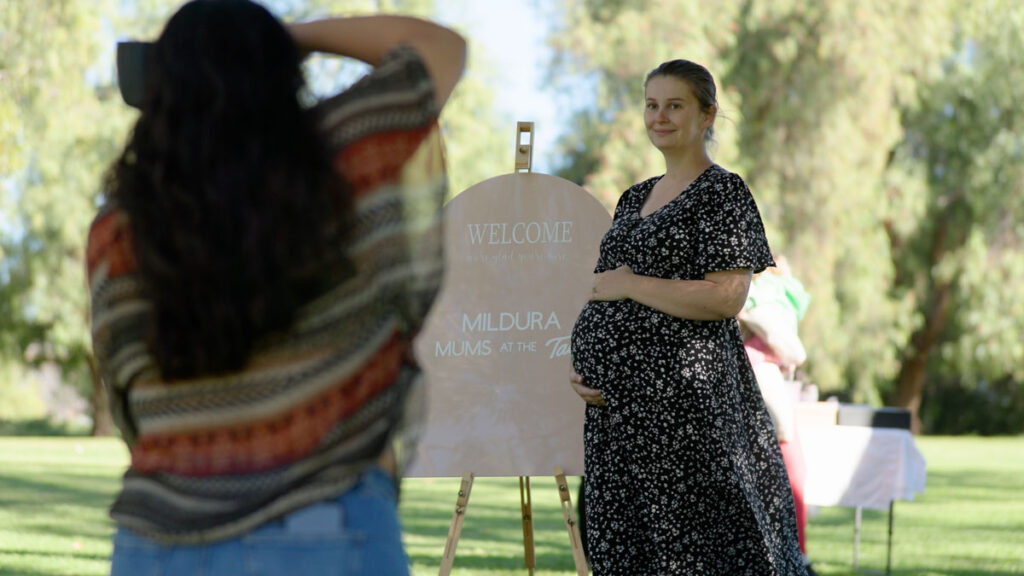If something is exclusive, then it is not for everyone. Exclusivity is associated with advantage and privilege. But if you belong to the rather exclusive special needs people group—those with physical or intellectual challenges—it usually means that you’re disadvantaged, “handicapped” (an oft-used label) and even stigmatised.
But what is the general attitude of the Christian Church towards people with special needs—those who are seen as different and disadvantaged? If the Church really is the body of Christ, of necessity, it must be inclusive.
The apostle Paul in 1 Corinthians 12:12–27 describes the Church as a “body”—an organism composed of many parts that are interdependent and in which each part is irreplaceable. He warns us to neither neglect nor underestimate any of its parts, even if they are small and unattractive.
Nevertheless, we have often neglected and underestimated those who seemed to be physically or mentally too weak, too disadvantaged or too different. We pay them little attention, maybe because we are afraid, or it is too hard or inconvenient. Perhaps our biggest obstacle is that we aren’t able to communicate with them—we don’t know how to comfortably approach them because we don’t have a personal experience with them.
We are not able to heal the deaf, blind and paralysed, as Jesus and the apostles did. It seems such miracles don’t happen today. But if there is a miracle, it’s in accepting such people as an equal part of Christ’s body—His Church. From a biblical point of view, they are people who have a clear perspective in the kingdom of God. God counts them among the remnant (Jeremiah 31:7–9). His invitation is for them, and they will not reject it, unlike some others (see Luke 14:16–22).
We read in the Gospels that there were special needs people in multitudes that daily surrounded Jesus (Matthew 15:30), He certainly didn’t heal all of them, and they remain today. God never removed them; instead, He taught His followers (us) how to approach them. Such were not to be discriminated against or oppressed (see Leviticus 19:14,15). On the contrary, God sees their potential and identifies with them (Isaiah 35:4–6).
With many Christians, there’s a tendency toward a theology of prosperity: God will provide us with success and comfort if we deserve it. But the biblical story proclaims a rather more prosocial and antidiscriminatory bias: we are to “consider others better than yourselves” (Philippians 2:3) because every human is worthy of our attention, everybody is invited to receive God’s grace and to follow Jesus, and no-one is excluded from Christ’s body, including those who are disadvantaged or even rejected by society (see 1 Corinthians 12; Ephesians 2:19–22; James 2:8,9).
People with special needs obviously require various forms of help in some daily matters, but they also have much to offer. They don’t want to be wholly dependent on others; they want, and are able, to serve. They don’t only have special needs, they also have unique abilities and gifts to give like all Christ’s followers. We need to recognise and use their potential, and then we will see not only their differences and disadvantages but also their enriching possibilities. [pullquote]
In John 9, we read a story in which Jesus meets a man born blind. The disciples promptly ask a question reflecting their prejudices, which persists still: they saw a human impairment always as the result of sin of the individual or their ancestors. Ellen White writes: “Satan, the author of sin and all its results, had led men to look upon disease and death as proceeding from God—as punishment arbitrarily inflicted on account of sin” (The Desire of Ages, p 471).
Jesus rejects this view, pointing to man’s disability as an opportunity to show God’s grace and power. Jesus heals the man using ordinary mud and water, nothing complicated or sophisticated, but when members of the religious elite find out that this healing occurred on the Sabbath, they call the man and ask him the details. They suggest he wasn’t blind at all, suspect a scam and call the man’s parents. But the parents refer them back to their previously blind son. The miraculously healed man is again called, to prove that Jesus was sinning in healing on the Sabbath.
The scholars recognised that Jesus possessed an unusual power but were confused, because of their corrupted beliefs, as to its origin. Then from the formerly blind man comes a surprisingly wise and profound response: “‘Now that is remarkable! You don’t know where he comes from, yet he opened my eyes. We know that God does not listen to sinners. He listens to the godly person who does his will. Nobody has ever heard of opening the eyes of a man born blind. If this man were not from God, he could do nothing’,” (John 9:30–33). Confounded, the religious leaders quickly expel the man.
What a clear demonstration that the problem with accepting a person with special needs lies not in their disability (he was already healed) but in our human attitudes. They still saw him as someone disabled and disadvantaged! And herein lies a great revelation: the man had been living with a severe impairment for years and was undoubtedly limited in his education and participation in the religious and general community, yet his statement manifested a mature, intelligent personality. He possessed a good knowledge of Scripture, moral competence and the ability to defend his beliefs and attitudes. Perhaps these came from Christ (see The Desire of Ages, p 474), but clearly his congenital impairment didn’t make him stupid, incompetent or dependent.
In an inclusive approach to those with special needs, their obvious impairments, disabilities and limitations aren’t the important thing. What is more important are their abilities, their gifts and their potential, for which it is up to the broader church community, and especially those in charge, to provide the opportunity for them to use.
Most of all, what they need is our respect; to appreciate their originality and deal with them equally, as we do with all others. We shouldn’t expect their simple assimilation (ie, complete adaptation to our majority standards), because in many cases full adaptation simply isn’t possible. An inclusive approach assumes mutual adaptation by the majority and the minorities.
When thinking to create inclusive church communities, I suggest the 5B strategy:
1. Barrier-free accessibility. Not just the elimination of physical barriers (eg, a ramp for wheelchairs or a hearing loop for the deaf), but removing or reducing barriers in communication, and barriers of prejudice and misunderstanding.
2. Breaking the worries. Don’t be afraid of contact with those who are different or have some special need; build the community where such people don’t have to be afraid to enter and be part of it.
3. Being nearby for those who need us (not only on a Sabbath). Many people with special needs are limited in their opportunities to acquire new social contacts. They would like more than just visiting a Sabbath worship service. Let’s accept this as an impulse to become a Christian not just one day a week but every day.
4. Biblical view on people with special needs. Nowhere in the Bible do we find God refusing people with special needs. On the contrary, He identifies with them (Matthew 25:34–40).
5. Building the Church together. It is our privilege to help create the body of Christ in which all His followers have their place and mission regardless of human weaknesses, limitations and special needs.
An inclusive church community adopting/adapting the 5B strategy and the attitudes of Jesus will provide the living experience of the present kingdom of God on Earth. It will be the living testimony of God, who does not cast out anyone who comes to Him (John 6:37–40).
April 27 is Special Needs Sabbath for the worldwide Seventh-day Adventist Church. For more information and additional resources, visit csfbhi.adventistchurch.com.
Pastor Josef Slowík is Special Needs Ministries coordinator for the Czech and Slovak Union, EUD.






